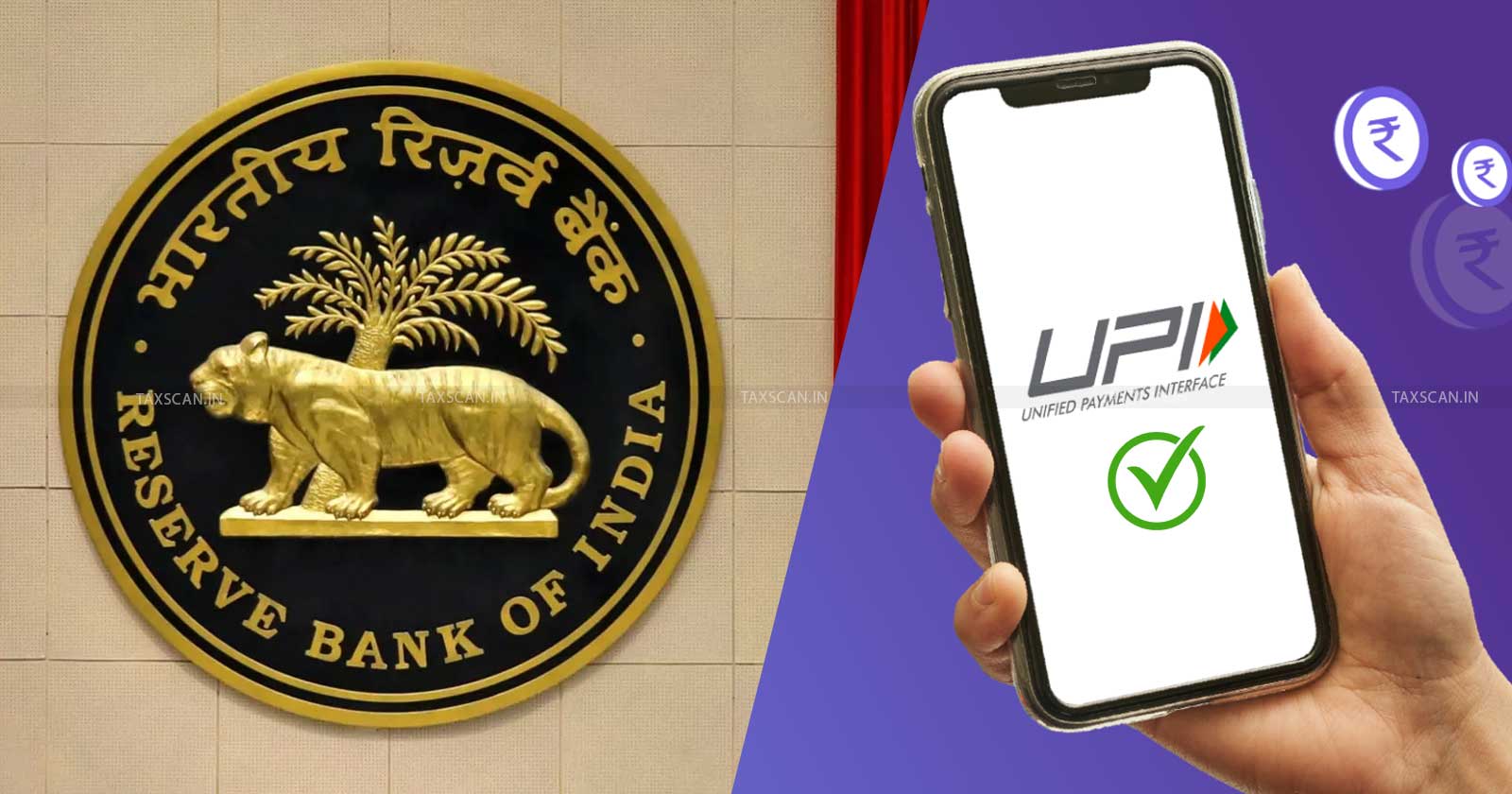RBI increases UPI Tax Payment limits to Rs. 5 Lakh: Know What this Means for Users and Taxpayers
RBI Raises UPI Transaction Limit for Tax Payments to Rs 5 Lakh

RBI – Reserve Bank of India – UPI Tax – RBI News – UPI Tax Payment Limit – TAXSCAN
RBI – Reserve Bank of India – UPI Tax – RBI News – UPI Tax Payment Limit – TAXSCAN
The Reserve Bank of India ( RBI ) has announced a significant increase in the Unified Payments Interface ( UPI ) transaction limit for tax payments, raising it from Rs 1 lakh to Rs 5 lakh per transaction. This change, revealed by RBI Governor Shaktikanta Das during the 50th meeting of the Monetary Policy Committee ( MPC ), aims to simplify the process of paying taxes through UPI.
Tax Payment Limit using UPI
Previously, UPI transactions were generally capped at Rs 1 lakh, with some exceptions for specific categories like hospital and educational payments, which had a higher limit of Rs 5 lakh. The new regulation extends this higher limit to tax payments, making it easier for users to handle larger transactions directly via UPI.
Get a Income Tax Rules, Click here
New ‘Delegated Payments’ Feature on UPI
In addition to raising the transaction limit, the RBI has proposed introducing a new feature called 'Delegated Payments' for UPI. This feature will allow a primary user to authorise another individual to make UPI transactions from their bank account, up to a pre-specified limit. The secondary user does not need to have a separate bank account linked to UPI to perform these transactions.
For instance, parents could grant their children limited access to their accounts for daily expenses, even if the children don't have their own UPI-linked bank accounts. This feature is designed to enhance the convenience and inclusivity of digital payments, particularly for those who may not have direct access to banking services.
If you have a younger sibling, you’ve probably used the excuse of not having your wallet or enough cash to avoid lending them money. Unfortunately, this excuse might not work much longer. The RBI has recently introduced a new feature called delegated payments, allowing others to make payments using your UPI account.
UPI Payments from a Single Account
With this new delegated payments feature, multiple users can now make payments from a single UPI account. This feature was announced during the August monetary policy review by RBI.
The feature allows a primary user to authorise another individual, such as a family member or employee, to make transactions from their bank account. The primary user sets limits on these transactions, giving them control while enabling others to manage finances within predefined boundaries.
Are All Accounts Eligible for This Feature?
Get a Income Tax Rules, Click here
It is important to note that this feature may only apply to savings accounts, and not to credit lines or credit cards.
Growing Popularity of UPI in India
UPI transactions have become incredibly popular in India, with many people now preferring them over cash payments. From vegetable vendors to small business owners, nearly everyone is accepting payments via UPI. In fact, Finance Minister Nirmala Sitharaman announced that in the fiscal year 2024, UPI recorded an astounding 131 billion transactions, totaling Rs 200 trillion.
The RBI believes these changes will significantly boost the usability of UPI for larger transactions and widen the scope of digital payments across India.
Support our journalism by subscribing to Taxscan premium. Follow us on Telegram for quick updates


